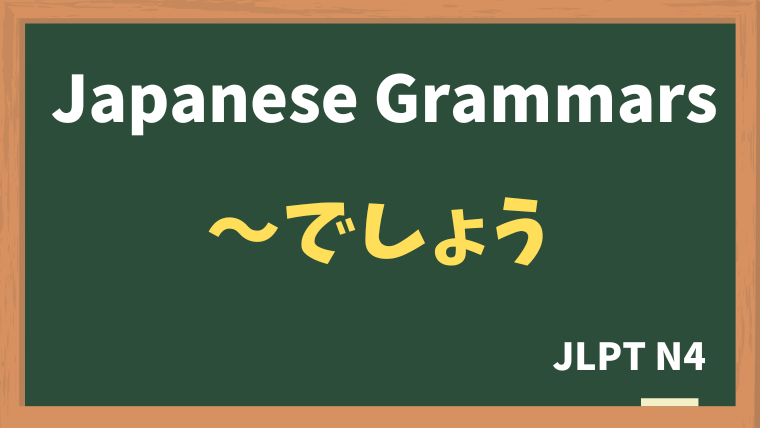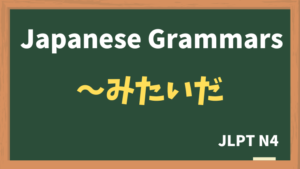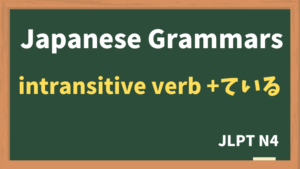
Explanation:〜でしょう
fa-check-circleMeaning
Used to express the speaker's conjecture or assumption about a situation. It implies a level of uncertainty, but the speaker believes their guess to be reasonable based on the context or available information. In English, it often translates to "probably," "I think," or "it seems."
fa-check-circleForm
Verb(plain form) + でしょう
い-adjective (plain form) + でしょう
な-adjective (plain form)+ でしょう ※ナAな + でしょう
Noun(plain form) + ※Nだ + でしょう
fa-check-circlePoints
- Expressing Probability: This expression is used when the speaker is reasonably sure about something but lacks absolute certainty.
- Indirect Prediction: "〜でしょう" softens the statement, making it sound less direct, as it reflects the speaker’s assumption rather than confirmed information.
- Polite Form: It is a polite expression, often used in both formal and conversational contexts. In casual settings, it’s sometimes shortened to "〜だろう."
fa-check-circleJLPT Level
N4
Sample sentenes
明日は 雨が 降るでしょう。
It will probably rain tomorrow.
明日は 寒くなるでしょう。
It will probably get cold tomorrow.
薬を 飲めば、大丈夫でしょう。
If you take the medicine, you will probably be fine.
トムさんは たぶん JLPT N5に 合格するでしょう。
Tom will probably pass the JLPT N5.
今日の 試合は 日本が 勝つでしょう。
Japan will probably win today's match.
漢字の 練習なら、この本が いいでしょう。とても 人気があって、レビューも 良いですよ。
If you're practicing kanji, this book would be good. It's very popular and has good reviews.
注文して 10分ぐらい 経つから、そろそろ 料理が 来るでしょう。
It's been about 10 minutes since we ordered, so the dishes will probably arrive soon.
Vocabulary
| Japanese | English | |
| 合格する | ごうかくする | to pass |
| 試合 | しあい | game / match |
| レビュー | - | review |
| 注文する | ちゅうもんする | to order |






